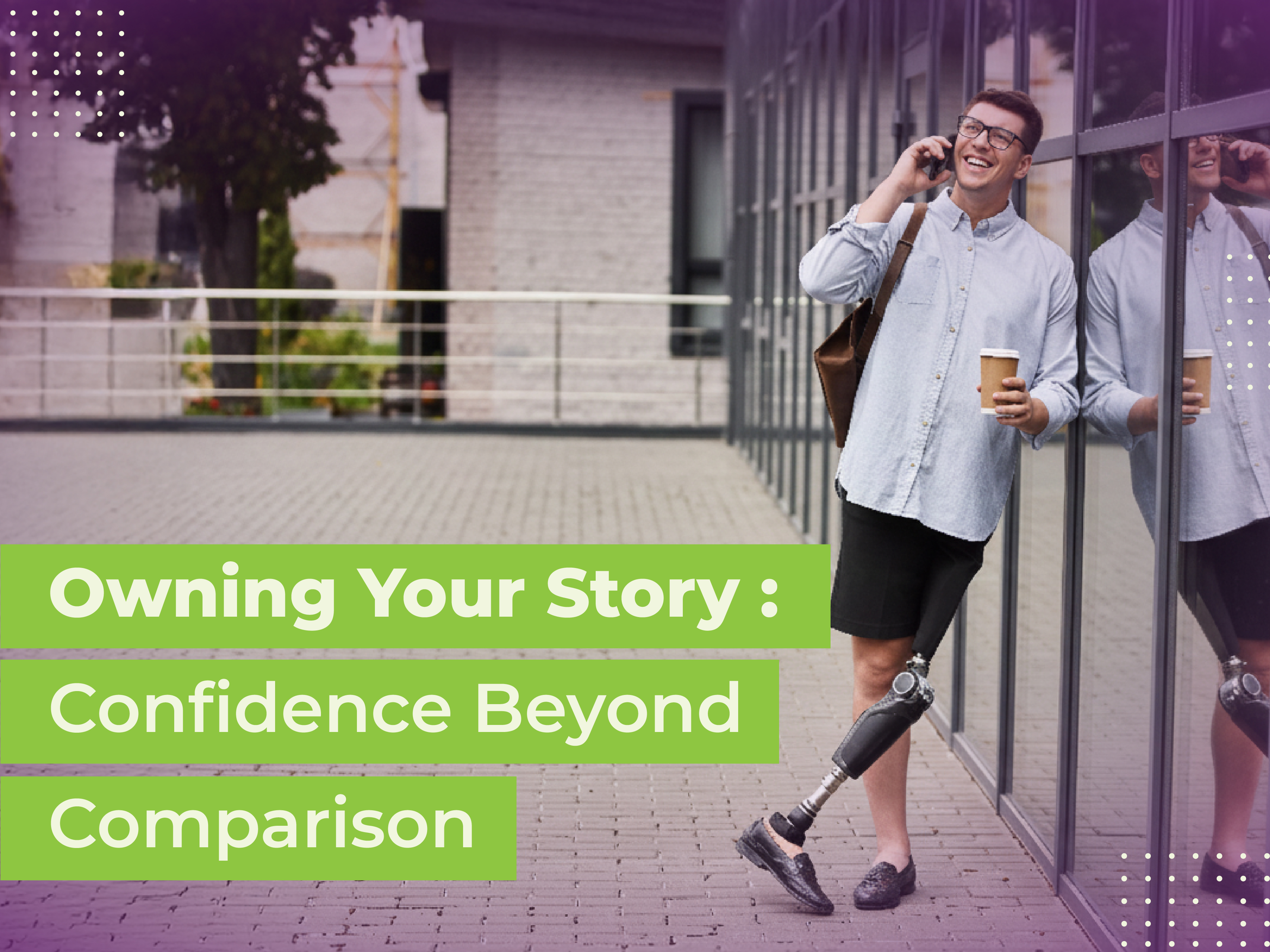Owning Your Story: Confidence Beyond Comparison

Every person holds a story shaped by the textures of their own life by the rooms they have entered, the voices they have met, the moments they have been seen. For people with disabilities, that story often carries the weight of being described by others before being heard in their own voice. Owning a story begins when that pattern changes. It begins when someone chooses to speak for themselves, with their own language, and to trust that their story is worth telling.
Knowing Where You Stand
Confidence grows through understanding, not through praise. It arrives through the slow work of recognising what has been lived and what has been learned. There is a difference between confidence and performance. Performance seeks approval; confidence holds truth.
Knowing where you stand means learning to listen to your own experience before the world names it for you. It means finding steadiness in the details, how you move through a room, how you speak about what matters and how you shape your days.
Confidence is a steady awareness: I exist as I am and that is enough to begin from.
Speaking Without Apology
Many people spend years softening their words to make space for others. But strength appears when expression becomes unguarded, when a person speaks without rehearsing how their truth might sound. To tell your story clearly is to give it dignity.
In community spaces, storytelling has always been a form of visibility. When people describe their own experiences like their challenges, their work, their creativity, they expand the language of what possibility looks like. Each voice becomes a mirror where others can see themselves reflected, and that reflection builds collective confidence.
Growing Through the Everyday
Confidence is rarely a single event. It grows through the daily practice of being present in your own life. It grows when you ask for support without hesitation, when you set a boundary, when you celebrate progress without needing to compare.
For some, confidence is found in work like showing up, contributing, being recognised as capable. For others, it appears in moments of creation, in art, writing, or movement. However it arrives, it takes shape through repetition, through the rhythm of showing up and being seen.
Building a Community of Belief
No story exists in isolation. Confidence multiplies when it is met with recognition. A nod, a conversation, an invitation to speak these gestures remind a person that their story belongs to a larger one. Community creates space where difference is familiar and respected.
To believe in yourself becomes easier when others believe alongside you. This shared belief is how inclusion grows: through affirmation, not instruction.
Living the Story Fully
Owning your story means carrying every part of it: the joy, the difficulty, the persistence, the small victories that shape each day. It means moving through the world with the calm assurance that identity is whole as it stands.
Confidence beyond comparison is not a claim to perfection. It is the choice to live truthfully, to hold space for change, and to keep creating meaning from your own experience.
.svg)
.jpg)
